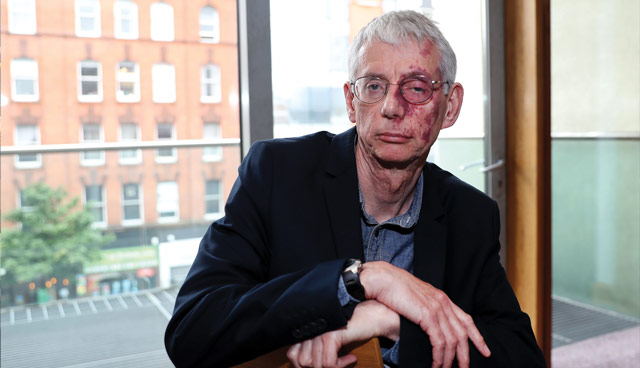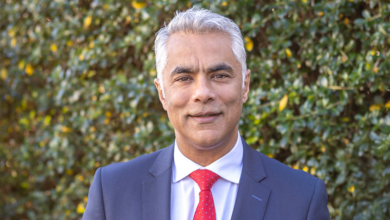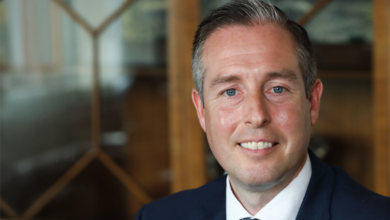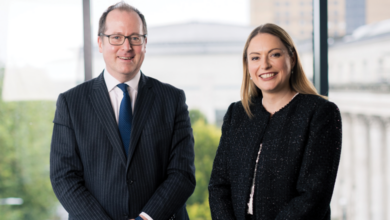Lessons from the Troubles and the unsettled peace

Author and journalist Paul Gosling details his new book, compiled from a series of interviews with political and civic leaders, focussing on Northern Ireland’s unsettled peace and promoting discussion on how to fully embed peace in society.
“It almost feels like we are taking the peace process for granted,” observed independent unionist MLA and former justice minister Claire Sugden. She was one of 35 leading public figures interviewed to consider how Northern Ireland can be transformed into a better place. One of the consistent warnings was that 23 years on from the Good Friday Agreement, we have yet to address some of the underlying tensions and inequalities that led to the Troubles.
Those interviews feature in a new book, Lessons from the Troubles and the Unsettled Peace. Simon Hamilton, a former Finance, Economy and Health Minister, and Peter Osborne, former Chair of both the Parades Commission and the Community Relations Council, each warned that we are not even mid-way through what is probably a 50-year peace process.
Hamilton made significant comments about how the Northern Ireland Executive worked while he was a minister, and still does. “I have thought for a while now that it is odd that a power-sharing Executive of Sinn Féin and the DUP, with all the difficulties that were there and the effort that had been put into coming together, the symbolism that was inherent within that in itself, didn’t actually prioritise peace building and trying to develop a shared society. Even trying to work out what we meant by ‘a shared society’ or ‘a more integrated society’. It didn’t feel that was always our priority.
“Maybe what I’m trying to say is that we maybe thought that just doing it, i.e. the power sharing, was enough in itself, without realising that you had to go much, much further beyond that.”
Equally significantly, many interviewees are positive about the potential for learning from the Irish Republic, and France, and elsewhere, with regards to the use of citizens’ assemblies as a means of making consensual progress. In Ireland, these have been used to consider same sex marriage, women’s reproductive rights, climate change and gender equality. A pilot assembly in Northern Ireland has looked at the social care system.
There was interest from many of the contributors, former Archbishop, Lord Robin Eames; Irish language activist Linda Ervine; Co-operation Ireland Chief Executive Peter Sheridan; and others, in their use here. But they suggested that as well as big picture difficulties, assemblies might be used to resolve localised problems, such as tensions on the two sides of a peace wall, or the grip of paramilitaries over some communities. Citizens’ assemblies could also be a means of overcoming party political stalemate over challenges such as health reform.
Progress also requires good government and effective decision-making. There have been examples of this, such as cross-border health care through children’s heart surgery in Dublin and cancer care in Derry. There are surely many more cross-border opportunities to improve health care delivery while achieving economies of scale. Professor Jim Dornan refers to the island of Ireland as a ‘Goldilocks’ sized territory for a single structure of health care delivery.
Another example of progress has been the Glider bus service in Belfast. As Alliance Party Leader Naomi Long explained, this has, at least until the pandemic, been important in enabling people to move across the city in safety and to travel to areas they would previously have been scared from visiting. This is similar to the impact of the Peace Bridge in Derry, which also brought physically separated communities together.
More problematic, though, is the creation of shared housing estates and overcoming separation by religion at school. Paramilitaries still seek to undermine shared housing estates by marking territory. Our society tacitly accepts this and it is surely time for us to have a serious public discussion about how to move forward, perhaps through a citizens’ assembly? Father Martin Magill suggested learning from the integrated education sector by establishing a body whose specific role is the promotion of shared housing. Another idea is to increase city centre living, which is inherently more mixed.
“It is surely time to reflect on the reality that Northern Ireland’s institutions of government do not work effectively.”
Conal McFeely, Chief Executive of Creggan Enterprises, warned that we have made too little progress in terms of the divisions and inequality in our society. A common theme across many of those interviewed was the frustration that a peace dividend has yet to be delivered in Northern Ireland, though, statistically, it has clearly provided a boost to the Republic’s economy. Another warning from many of the interviewees was that our schooling system delivers for the few, while failing for many. In doing so, it exacerbates class divisions, with many pupils leaving school without the skills or qualifications for career success. Victims campaigner Alan McBride lamented that for many children their role model is a paramilitary brigadier or commander.
It is surely time to reflect on the reality that Northern Ireland’s institutions of government do not work effectively. We have serious deficiencies in our health and education systems, weak infrastructure, inadequate skills and poor productivity. Yet the way decisions are made seems to often deflect attention from the things that are most important.
While communal divisions are constantly apparent within the Executive, they were not reflected in the responses of the 35 opinion leaders interviewed. Yet, these included senior figures from loyalist, republican, unionist, nationalist and non-aligned backgrounds, including religious as well as political leaders, and senior figures in the Dail. This suggests to me that we (I mean collectively, across society) need to find different ways to make decisions, focusing on evidence, objectives and outcomes.
Citizens’ assemblies would be one approach, another might be to bring in outside figures to help decisions to be made, just as happened during peace negotiations. One of my concerns is that the structural recognition of communal differences solidifies them, hampering the chance of doing things differently. Lebanon adopted a similar peace approach, and still allows militias to control parts of the country, has had a collapse of government and its economy, with recently a massive and deadly explosion as a result of government incompetence.
Lebanon is a warning to us. We need to take our challenges more seriously. That involves having an honest and sensible conversation about the constitutional future of Northern Ireland. Neither unionism nor republicanism benefits from the dysfunctionality of government here. As the economist David McWilliams has observed elsewhere, Northern Ireland is like the baby of an unhappy marriage that neither parent wants to accept custody over. It is in the interests of all political parties here to make Northern Ireland work. I hope this book will help that process.
Lessons from The Troubles and the Unsettled Peace is edited by Paul Gosling and published by Holywell Trust. Copies are available at https://www.holywelltrust.com





